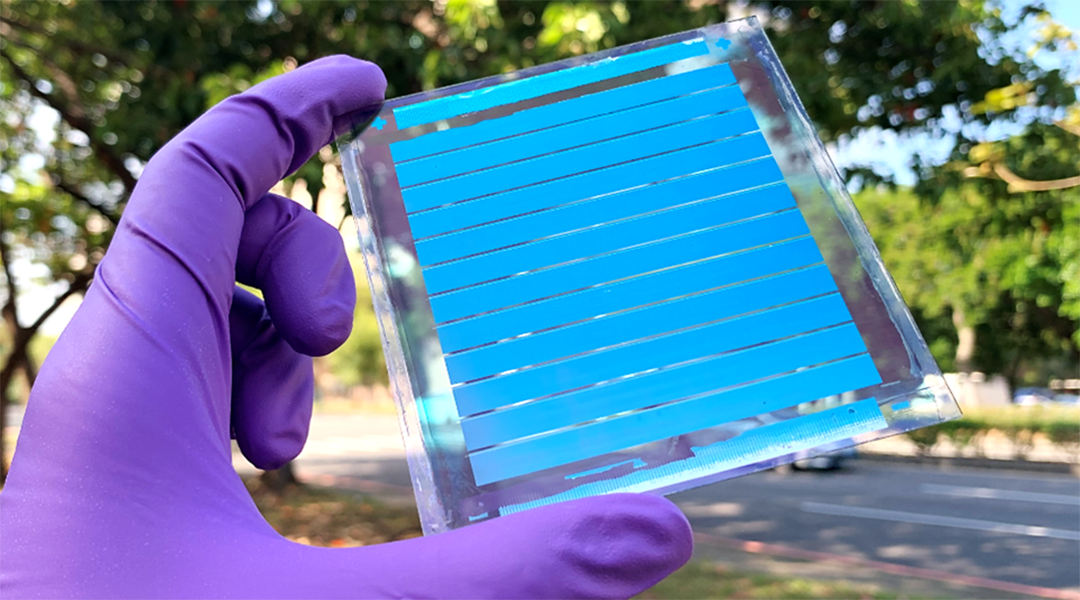Organic solar cells are a promising alternative to conventional PV solar panels, offering lighter-weight materials, flexibility, transparency, and low-cost manufacturing. They use organic molecules such as conductive polymers or small molecules to absorb light generate energy.
While they have attracted broad research attention, their commercialization has been hampered by the scalability of materials. The performance is of course important, materials for large-scale production of solar modules must also be inexpensive, which from a manufacturing standpoint means they need to be made from low-cost, readily available starting materials and their synthesis and purification should be as concise as possible.
To this end, a new organic photovoltaic ink formulation called PV-X Plus for printable organic solar cells was recently reported in a study published in the journal Solar RRL. The new solar cells are made from a combination of organic semiconductor materials, which require a simplified synthetic process to make them, lowering lower the material costs without sacrificing solar cell efficiency and stability.
The organic solar cell produced by this formulation exhibits a competitive power conversion efficiency, which approaches the values of existing polysilicon-based solar cells. Additionally, the devices retain superior stability under solar irradiation, which is promising for commercial entry.
The PV-X Plus formulation was eventually demonstrated on an organic solar module, and a power conversion efficiency of 10.3% was certified by the Industrial Technology Research Institute, which is one of the highest values reported to date for all-solution-processed organic solar modules.
The work represents a promising result in material development for fabricating large-scale organic-based solar cells ideally to help bring this environmentally friendly technology closer to the market. Organic solar cells are not only a solar power technology, but are indeed a truly green energy harvesting technology with an extremely low carbon footprint and short energy pay-back time. In the years to come, they could potentially play a vital role in energy harvesting, helping bring renewables closer to replacing carbon-emitting energy sources.
Reference: Chuang-Yi Liao, et al., Photoactive Material for Highly Efficient and All Solution‐Processed Organic Photovoltaic Modules: Study on the Efficiency, Stability, and Synthetic Complexity, Solar RRL (2021). DOI: 10.1002/solr.202000749

















